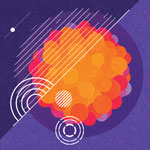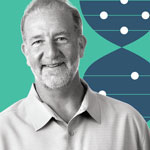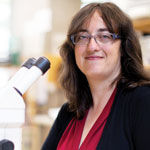The Salk Institute’s Harnessing Plants Initiative to combat climate change using plants, led by Professor Joanne Chory, executive director of the initiative, will receive funding of over $35 million from more than 10 individuals and organizations through The Audacious Project, a highly competitive program housed at TED. The collective commitments represent one of the largest gifts to a single project in the Institute’s history.
“We are overjoyed with this strong show of support for the Harnessing Plants Initiative from donors through The Audacious Project,” says Chory, who is also director of Salk’s Plant Molecular and Cellular Biology Laboratory. “Plants have evolved over time to be an ideal vehicle for carbon capture and storage. If we can optimize plants’ natural ability to capture and store carbon, we can develop plants that not only have the potential to reduce carbon dioxide in the atmosphere (negative emissions) but that can also help enrich soils and increase crop yields.”
The Harnessing Plants Initiative Leadership Team—which includes Salk faculty Wolfgang Busch, Joseph Ecker, Julie Law and Joseph Noel—aims to use a combination of cutting-edge technologies to turbocharge plants’ ability to capture and store in their roots larger amounts of carbon from the atmosphere and keep it buried in the ground for hundreds of years. Chory led the Institute’s involvement with The Audacious Project and was instrumental in the Harnessing Plants Initiative being chosen to receive this support. A Howard Hughes Medical Institute investigator and a recipient of the 2018 Breakthrough Prize and the 2018 Gruber Genetics Prize for her work in plant biology, Chory presented the key elements of the initiative in a nine-minute speech before an audience of 2,000 people attending the TED annual conference in Vancouver, British Columbia, on April 16, 2019. (A video of Chory’s talk has over 1 million views online.)






















































